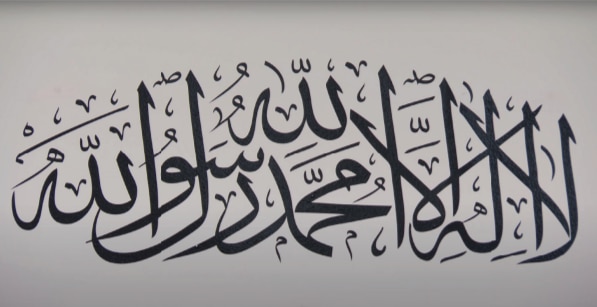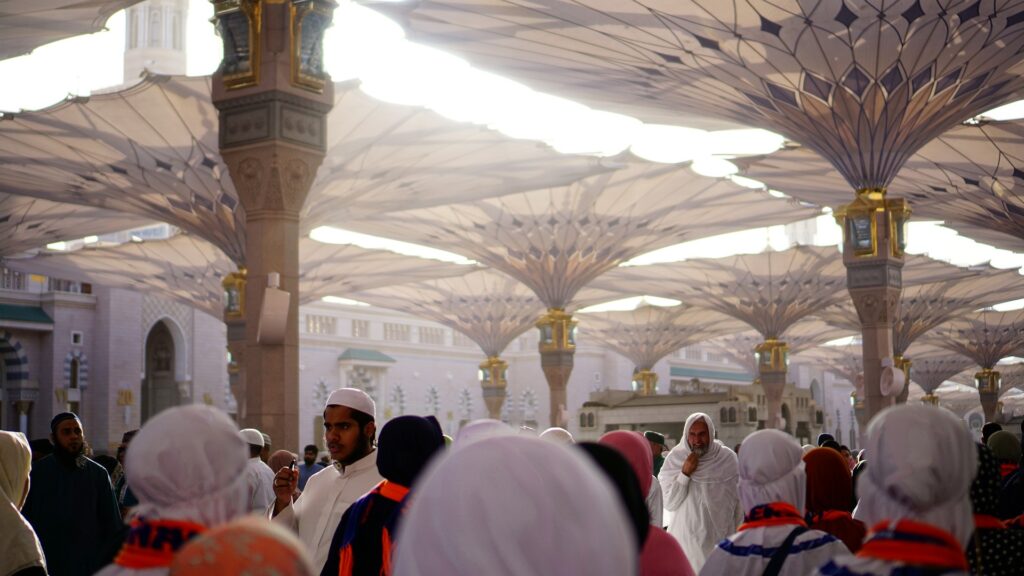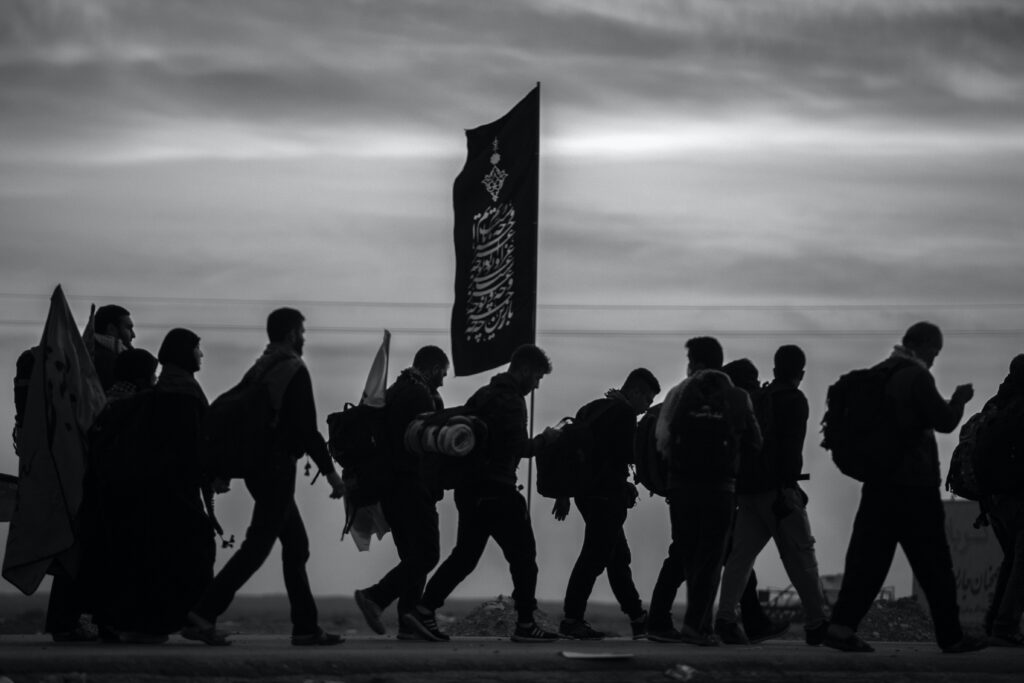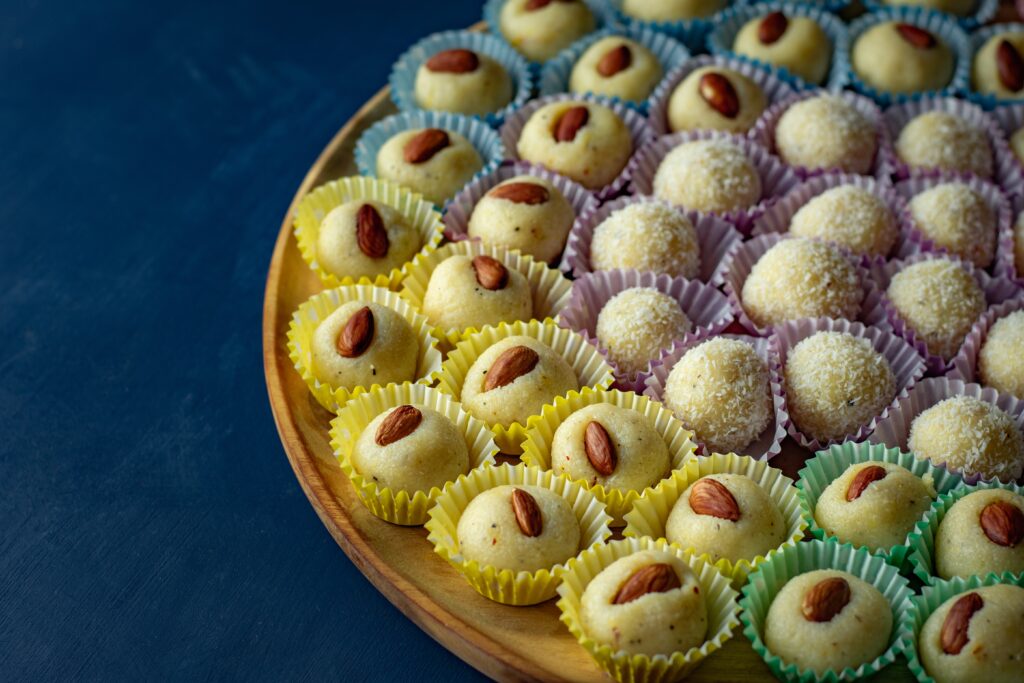Guidance regarding basic Islamic issues – which Hazrat Amirul Momineen, Khalifatul Masih Vaa has given on various occasions in his written correspondence and during MTA programmes – is being officially published below for everyone’s benefit

Shahadah
A lady wrote to Hazrat Amirul Momineen, Khalifatul Masih Vaa that an Ahmadi had said in response to a question on his YouTube channel that “Khatam” was the name of the Holy Prophetsa and therefore, there was nothing wrong with adding the phrase “Khatamun-Nabiyyin” to “Muhammadur-Rasulullah” in the Shahadah and that “Ahmadur-Rasulullah”, as well as “Muzzammil” or “Muddathir” could be added as they too were the names of the Holy Prophetsa. She asked whether this view was correct?
Hazrat Mirza Masroor Ahmad, Khalifatul Masih Vaa, while replying to the above question in a letter dated 20 October 2020, gave the following instructions:
“In reference to what you have written in your letter, if this person, an Ahmadi, has indeed said so, then they are wrong. It is not at all the position of the Ahmadiyya Muslim Jamaat that such a change can take place in the shahadah. Wherever the words of the shahadah appear in the ahadith of the Holy Prophetsa, his personal name [Muhammad] has been mentioned in every instance. Nowhere did the Holy Prophetsa or his Companionsra use any of his attributive names instead of his personal name. Moreover, the Just Arbiter [Hakam and Adl] of this age, the Promised Messiahas has also stated the same shahadah across his writings and other discourses and has only used the personal name of the Holy Prophetsa in the shahadah.
“Hence, not only is this kind of change against uniformity, but it is also against the basic teachings of Islam. Therefore, every Ahmadi ought to avoid such things.”
A father’s prayers
Nazarat-e-Islah-o-Irshad Markaziyya Rabwah asked Hazrat Amirul Momineen, Khalifatul Masih Vaa about some ahadith regarding the acceptance of a father’s prayer for and against his children.
Huzooraa, in a letter dated 10 November 2020, provided the following guidance on this issue:
“Both kinds of ahadith narrated in the books of hadith are correct in their own right and are serving as guides for us. In view of both types of ahadith, the consolidated view would be that a person whose prayers in favour of someone are potent with [God’s] acceptance, his prayers against someone can also be accepted. Allah the Exalted did not say that He would accept his prayers in favour of someone but not against a person.
“In view of the status that Allah the Exalted has bestowed on a father, He accepts his prayers in favour of others and also hears his supplications against someone. That is why Allah the Exalted has especially stated about parents in the Holy Quran:
وَ قَضٰي رَبُّكَ اَلَّا تَعۡبُدُوۡۤا اِلَّاۤ اِيَّاهُ وَ بِالۡوَالِدَيۡنِ اِحۡسَانًا ؕ اِمَّا يَبۡلُغَنَّ عِنۡدَكَ الۡكِبَرَ اَحَدُهُمَاۤ اَوۡ كِلٰهُمَا فَلَا تَقُلۡ لَّهُمَاۤ اُفٍّ وَّ لَا تَنۡهَرۡهُمَا وَ قُلۡ لَّهُمَا قَوۡلًا كَرِيۡمًا ۔ وَ اخۡفِضۡ لَهُمَا جَنَاحَ الذُّلِّ مِنَ الرَّحۡمَةِ وَ قُلۡ رَّبِّ ارۡحَمۡهُمَا كَمَا رَبَّيٰنِيۡ صَغِيۡرًا
“‘Thy Lord has commanded, “Worship none but Him, and (show) kindness to parents. If one of them or both of them attain old age with thee, never say unto them any word expressive of disgust nor reproach them, but address them with excellent speech. And lower to them the wing of humility out of tenderness. And say, ‘My Lord, have mercy on them even as they nourished me in (my) childhood.’”’ (Surah Bani Israil, Ch.17: V.24-25)
“Therefore, in these ahadith, the Holy Prophetsa advised us to take advantage of the prayers of the father and to safeguard ourselves from his supplications against us.”
Women at al-Safa and al-Marwa

Hazrat Amirul Momineen, Khalifatul Masih Vaa was asked as to why, during the sa‘ee [walk] between the hills of Safa and Marwa, men ran while women did not, even though Hazrat Hagaras ran in that place. The person asked what the wisdom behind this was.
Huzooraa, in a letter dated 22 November 2020, gave the following reply to this question:
“Where, on the one hand, sa‘ee is performed between Safa and Marwa on the occasion of Hajj and Umrah in remembrance of the sacrifice of Hazrat Hagaras and Hazrat Ishmaelas, we also learn from the books of hadith that on the occasion of Umratul Qadha, in order to show the strength of the Muslims to the disbelievers of Mecca, the Holy Prophetsa instructed His Companionsra to run and walk briskly with puffed out chests during the first three circumambulations of the tawaf of the Ka‘bah and the sa‘ee of Safa and Marwa. He also did the same because the disbelievers of Mecca believed that the Muslims who came from Medina were greatly weakened by the fever there. (Sahih Muslim, Kitab al-Hajj)
“Therefore, according to this instruction and the action of the Holy Prophetsa, running in the first three circumambulations of the tawaf of the Ka‘bah and during the sa‘ee between Safa and Marwa became the sunnah of the Holy Prophetsa for the men performing Hajj and Umrah (given that they have the strength to do so).
“However, it is not necessary for those who do not have the strength to run, as [is evident from] the response of Hazrat Abdullah bin Umarra (who was walking instead of running during the sa‘ee because of his old age) to the objection of a person. He said, ‘If I used to perform sa‘ee by running, then it was because I saw the Messengersa of Allah performing sa‘ee by running, and if I am now performing the sa‘ee by walking due to my old age, then it is because I also saw the Messengersa of Allah performing the sa‘ee by walking.’” (Sunan al-Tirmidhi, Kitab al-Hajj)
“According to Islamic jurists – the fuqaha – running during the tawaf of the House of Allah and during the sa‘ee is a sunnah for men, not for women, because the satar, i.e. purdah that is mandatory for women, cannot be maintained by their running.
“As far as Hazrat Hagar’sas running in search of water is concerned, it was an emergency situation in which Hazrat Ishmaelas had reached a state of dying due to intense thirst. Moreover, it is also mentioned in the narrations that in some places she would walk fast, and at times she would run, just like one sometimes takes quick few steps and also runs out of restlessness to reach a certain place. Nevertheless, there is no such emergency for women on the occasion of Hajj and Umrah. Moreover, there are also men along with women on the occasion of Hajj and Umrah. Therefore, it is considered sufficient for women to walk at a reasonable pace on this occasion so that they are able to follow the sunnah of Hazrat Hagaras while also upholding the commandment of purdah.”
Water for Shia mourners

The nazim of Dar-ul-Ifta in Rabwah submitted a report to Hazrat Amirul Momineen, Khalifatul Masih Vaa about offering water etc. to the participants of Shia mourning [matam] processions by way of serving humanity.
While commenting on the report, Huzooraa, in a letter dated 22 November 2020, stated:
“In my opinion, the instructions of the Promised Messiahas and Hazrat Musleh-e-Maudra are very clear in this regard, according to which designating a specific day and time for this kind of activity is an innovation [bid‘ah]. However, if an Ahmadi or one of the jamaats worked for the welfare of the people all year round in the spirit of serving people and set up these kinds of stalls for peaceful processions of different religions and organisations throughout the year by way of serving humanity, then there would be no issue with setting up such a stall for the mourning procession of the Shias. However, if this is done exclusively for the mourning processions of Shias and no other such stalls are set up throughout the year, then it is definitely a bid‘ah and Ahmadis should avoid such innovations completely.”
The instructions of the Promised Messiahas and Hazrat Musleh-e-Maudra, mentioned in Huzoor’saa letter, are being reproduced below for the benefit of the readers. (Editor)
The instruction of the Promised Messiahas is as follows:
“Hazrat Qazi Zahur-ud-Din Akmalra asked, ‘What is [the Promised Messiah’sas] instruction regarding the free distribution of sweetened drinks and cooked rice etc. on 10 Muharram, if it is done for the sake of Allah and with the intent of isaal-e-thawaab [reward to be received by the deceased]?
“[The Promised Messiahas] replied:
“‘Designating a day and time for such deeds is a ritual and an innovation [bid‘ah] and such rituals gradually lead to shirk. Thus, it should be avoided because such rituals do not end well. It may have been done in the beginning with this intention, but now it has taken the hue of shirk and the name of those other than Allah. Hence, we declare it impermissible. Unless such rituals are eradicated, false beliefs will not go away.’” (Badr, No. 11, Vol. 6, dated 14 March 1907, p. 6)
The instruction of Hazrat Musleh-e-Maudra is as follows:
“Someone said that Sunnis cooked and distributed among themselves certain kinds of food etc. on the days of Muharram. They asked what [Huzoor’sra] instruction was about this.
“[Hazrat Musleh-e-Maudra] replied:
“‘These are also innovations [bid‘aat] and consuming those is also not right. If one does not stop consuming it, then why would they stop preparing? Consuming the food given upon the 12th day of a person’s death [barhaween] is not correct and giyarhween [11th day] is nothing but unadulterated shirk. It is mentioned in the Holy Quran:
وَ مَاۤ اُهِلَّ بِهٖ لِغَيۡرِ اللّٰهِ
[“and that on which the name of any other than Allah has been invoked”] (Surah al-Baqarah, Ch.2: V.174). These actions also fall under it because such people raise animals in the name of their Pir Sahib.’” (Al Fazl Qadian, Vol. 10, No. 32, 23 October 1922, pp. 6-7)
Conjugal rights and responsibilities

A lady sent two ahadith to Hazrat Amirul Momineen, Khalifatul Masih Vaa regarding conjugal rights and responsibilities of husband and wife and enquired whether the two ahadith also applied to a husband.
Huzooraa, in his letter dated 22 November 2020, gave the following reply to this question:
“The first hadith states that when a husband calls his wife to bed and she refuses out of some dissatisfaction, the angels curse her all night long. Remember that this hadith applies not only to the wife but, in the opposite scenario, also to the husband.
“If there is one aspect that can be deduced from this hadith, it is that the Holy Prophetsa cautioned married women against refusing without any legitimate excuse on account of the men’s impatience regarding their sexual appetite. Otherwise, just as the wife is obliged to fulfil the sexual needs of the husband along with his other rights, the husband is also obliged to fulfil her sexual rights along with the other needs. Therefore, if a husband does not pay his wife’s conjugal dues upon her request, without any compelling reason, then he too will be liable before Allah, in the same way as the wife, who incurs the displeasure of Allah the Exalted by refusing to satisfy her husband’s sexual desire without any legitimate excuse.
“It is narrated by Hazrat Abu Musa al-Ash‘arira that once, the wife of Hazrat Uthman ibn Maz‘unra came to the wives of the Holy Prophetsa. The respected wives, upon seeing her plight, asked what had happened to her, for there was no one in the Quraish wealthier than her husband. She replied, ‘I have no use for all that because my husband spends the day fasting and the night praying.’
“Later, when the Holy Prophetsa visited his wives, they mentioned this to the Holy Prophetsa. The narrator says that the Holy Prophetsa met with Hazrat Uthman ibn Maz‘unra and (while expressing his displeasure) said to him, ‘Am I not an example for you?’ Upon this, Hazrat Uthman ibn Maz‘unra asked, ‘May my mother and father be sacrificed for you, what is the matter?’ The Holy Prophetsa replied, ‘You spend the night praying and the day fasting, whereas your family also has a right over you and your body has a right over you. Therefore, offer prayers but also sleep and sometimes fast and sometimes do not fast.’
“The narrator says that after some time, when the same woman came to the wives of the Holy Prophetsa, she was wearing fragrance and was adorned like brides. The respected wives expressed their delight upon seeing her and exclaimed, ‘Excellent! How charming!’ She told them, ‘Now, I also have everything that other people have.’ (Majma‘ al-Zawa‘id, Kitab al-Nikah, Baab haqqil-mar‘ati ala al-zauj)
“Moreover, with reference to the above-mentioned hadith, it should also be kept in mind that in the case that the refusal of this act is due to a valid excuse or a compelling reason, neither party would be subject to the displeasure of Allah the Exalted. Hence, it is mentioned in a hadith that when the Holy Prophetsa went to the Battle of Tabuk, a Companion who had gone out on a journey returned to Medina after the Holy Prophetsa had already left. He turned to his wife to show affection to her, but she pushed him back, saying, ‘You should be ashamed of yourself for the Holy Prophetsa has gone out to war against the enemy in such intense heat and all you want to do is to make love to me and go in unto me?’ (Dibacha Tafsir-ul-Quran [Urdu], pp. 343-344, published 1948)
“Therefore, if a party refused due to a valid excuse or a compelling reason, they would not be liable to any punishment. However, if a husband or a wife comes close to their spouse, arouses their feelings, and then moves away from them in order to tease them, then surely the one who does so will be subject to the displeasure of Allah the Exalted.
“As far as the hadith regarding a married woman observing voluntary fasting with the consent of her husband during his presence at home is concerned, the wisdom behind it is that Islam has taken care of the rights and responsibilities of the husband and wife in every sphere. Therefore, in the division of the rights and responsibilities of the spouses, all the responsibilities related to outside the home and the provision of food and financial support for the wife and the children etc. have been entrusted to the husband by Allah the Exalted and the domestic responsibilities (including the protection of household property, providing for the needs of the husband and raising of the children etc.) is entrusted to the wife by Allah the Exalted.
“So, when the husband goes out of the house to perform his duties, the wife has total leave to perform supererogatory worship along with the performance of her household duties. However, if the wife desires a leave from fulfilling the rights of the husband during his presence at home, then she should do so by his consent since the provision of his needs is included among the duties of the wife. The wisdom behind this commandment becomes fully evident from an incident mentioned in the following hadith:
“Hazrat Abu Saeedra narrates that the wife of Hazrat Safwanra ibn al-Muattal (who used to work on the fields all night and spend the day at home) complained to the Holy Prophetsa, saying, ‘My husband makes me break my fast when I am observing voluntary fasting.’ The Holy Prophetsa asked Hazrat Safwanra about it. He replied, ‘When she fasts, she keeps on fasting. Since I am a young man, I cannot restrain myself.’
“The narrator states that the Holy Prophetsa announced on that day that, ‘A woman should not observe (voluntary) fast except with the consent of her husband.’ (Sunan Abi Daud, Kitab al-Saum)”
In short, Islamic teachings urge husbands and wives to fulfil all of each other’s rights, including [those related to] the sexual relationship, with utmost honesty. Neither party has been allowed to usurp the rights of the other on the premise of worship. Therefore, the party who violates the rights of the other in any way will be considered guilty before Allah the Exalted.
Diwali food

A lady wrote to Hazrat Amirul Momineen, Khalifatul Masih Vaa that they received food items from Hindus on Diwali, some of whom expressly informed them that the food was kept separate from puja [worship ritual performed by Hindus], but some simply gave a box and left without saying anything about it. She asked whether it was permissible to consume such food.
Huzooraa, while replying to the above question in a letter dated 13 December 2020, provided the following guidance:
“There is no harm in eating food which is prepared with halal ingredients, in clean dishes, following the principles of hygiene and which does not have any aspect of shirk in it. It is also not desirable to probe such matters beyond reason. However, before eating such food, ‘Bismillah …’ should be recited so that if there is any deficiency in the food, it can be compensated by the blessing of the name of Allah the Exalted. Islam also forbids breaking anyone’s heart unnecessarily, merely due to suspicion.
“The Promised Messiahas used to eat the food that came from Hindus and also used to accept and eat the sweets etc. which were gifted by them. Hence, while replying to the question of a person on whether the food prepared by Hindus was permissible, he stated:
“‘The Shariah has made it permissible. The Shariah does not insist on such restrictions; rather, it pays emphasis on:
قَدۡ اَفۡلَحَ مَنۡ زَكّٰهَا
“‘[“He indeed (truly) prospers who purifies it” (Surah al-Shams, Ch.91: V.10)]. The Holy Prophetsa would eat items prepared by Armenians and, in any case, one cannot do without it.’” (Al Hakam, No. 19, Vol. 8, dated 10 June 1904, p. 3)
(Compiled by Zaheer Ahmad Khan, Head of Records Dept, Private Secretariat, London. Translated by Al Hakam)

